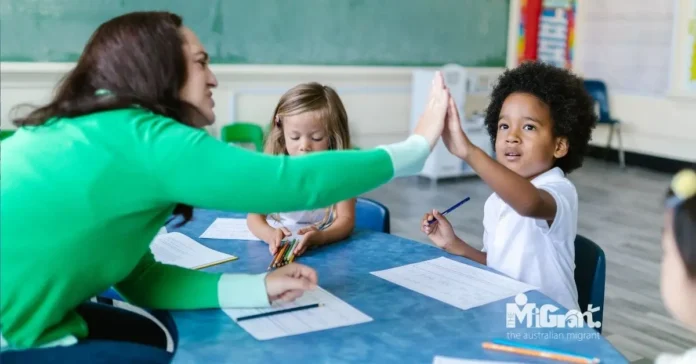Mental health in schools has become one of the most pressing challenges for educators and families today. From academic pressures to social expectations, both students and teachers face unique struggles that often go unnoticed. Creating a supportive school environment where mental well-being is prioritized can make a profound difference—for students, teachers, and families alike.
Why Mental Health Matters in Schools
Imagine a teenager named Liam who used to be a star student. Over a few months, he stopped participating in class, avoided his friends, and started failing his tests. His teacher, Mrs. Carter, noticed the change but didn’t know how to approach it. Liam’s story isn’t unique—many students experience similar challenges. Mental health issues, if ignored, can lead to poor academic performance, social isolation, and long-term emotional difficulties.
Schools are not just places for academic learning; they’re also environments where children and young adults grow socially and emotionally. Prioritising mental health in schools helps students build resilience, focus on their studies, and form meaningful relationships. For teachers, addressing mental health creates a more harmonious classroom where everyone feels supported.
Recognising the Signs of Mental Health Struggles
One of the biggest barriers to addressing mental health is identifying the signs. Many children and teens are unable—or unwilling—to express what they’re going through. As an educator or parent, here are some key indicators to watch for:
- Sudden changes in mood or behavior, such as irritability, sadness, or withdrawal.
- Physical complaints like headaches or stomachaches without a clear medical cause.
- Declining academic performance or lack of interest in previously enjoyed activities.
- Frequent absences from school or social events.
Teachers like Mrs. Carter often play a critical role in spotting these changes early. “I wasn’t trained in mental health, but I started asking simple, open-ended questions,” she shared. “That small step opened the door for Liam to talk about what he was going through.”
Practical Steps for Educators
Educators are on the frontlines of supporting mental health in schools. While they’re not expected to be mental health experts, there are simple, effective ways to create a positive impact:
- Create a Safe Space: Let students know they can talk to you about anything without fear of judgment. A quick check-in at the start of the day or a note box for anonymous thoughts can make a big difference.
- Incorporate Well-Being Activities: Start the day with mindfulness exercises like deep breathing or a moment of reflection. Even a short break for students to stretch and reset can reduce stress levels.
- Partner with Mental Health Professionals: Work closely with school counsellors or psychologists. Teachers can’t do it all alone, and professional support is essential when issues go beyond their expertise.
Practical Steps for Families
Families play a critical role in promoting mental health. A strong support system at home can empower children to face their challenges with confidence. Here’s how parents and guardians can help:
- Start Conversations: Ask your child open-ended questions about their day, their feelings, and their friendships. Create a safe space where they feel comfortable sharing.
- Encourage Healthy Habits: Mental health is deeply connected to physical well-being. Encourage regular sleep, balanced nutrition, and physical activity. For example, walking together after dinner can create time to talk and bond.
- Seek Professional Support When Needed: Don’t hesitate to reach out to a mental health professional if your child is showing persistent signs of emotional distress. Early intervention can make all the difference.
Creating a Mental Health-Positive School Culture
Promoting mental health in schools isn’t just about individual efforts—it’s about creating a culture where well-being is prioritized. Here’s how schools can foster a positive environment:
- Implement Peer Support Programs: Older students trained in active listening and empathy can act as mentors for younger students.
- Organize Awareness Campaigns: Schools can host workshops, talks, or events during Mental Health Awareness Week to educate the community.
- Celebrate Small Wins: Recognize acts of kindness, resilience, or effort to show that every student’s contributions matter.
A school in Sydney recently introduced a “Kindness Wall,” where students could leave positive messages for their peers. The initiative not only boosted morale but also encouraged students to be more open about their feelings.
The Role of Technology in Supporting Mental Health
With the rise of AI tools and digital platforms, schools and families have more resources than ever to address mental health. Apps like Calm and Headspace offer mindfulness exercises tailored for students and teachers. AI-enhanced tools, such as virtual counselors, can provide personalized support based on user inputs. However, it’s important to balance technology with human interaction to ensure emotional connections aren’t lost.
Useful Links for Supporting Mental Health in Schools
- Kids Helpline
A free and confidential 24/7 online and phone counseling service for young people in Australia. - Beyond Blue
Provides resources and support for managing mental health, including a dedicated section for schools. - Headspace
Australia’s National Youth Mental Health Foundation offering tailored mental health services for young people. - ReachOut
Offers practical support, tools, and tips for students, parents, and teachers. - Smiling Mind
A free mindfulness app designed to improve mental well-being, with programs tailored for schools and families.
Working Together for Better Mental Health
Mental health in schools is everyone’s responsibility. Whether you’re a teacher checking in on a quiet student, a parent encouraging your child to share their feelings, or a school leader creating awareness programs, every effort counts. Together, we can build schools where mental health is not just a conversation but a foundation for growth and success.
As Mrs. Carter says, “It’s not about having all the answers—it’s about letting students know they’re not alone.”
Looking to apply for an Australian visa or explore migration opportunities? We can connect you with a trusted Registered Migration Agent who specializes in student, skilled worker, partner, family, and visitor visas. Whether you're planning to study, work, or settle in Australia, they’ll guide you through every step of the process. Send your inquiries to themigrant.au@gmail.com, and we’ll help you get in touch with the right experts for your visa and migration needs!





